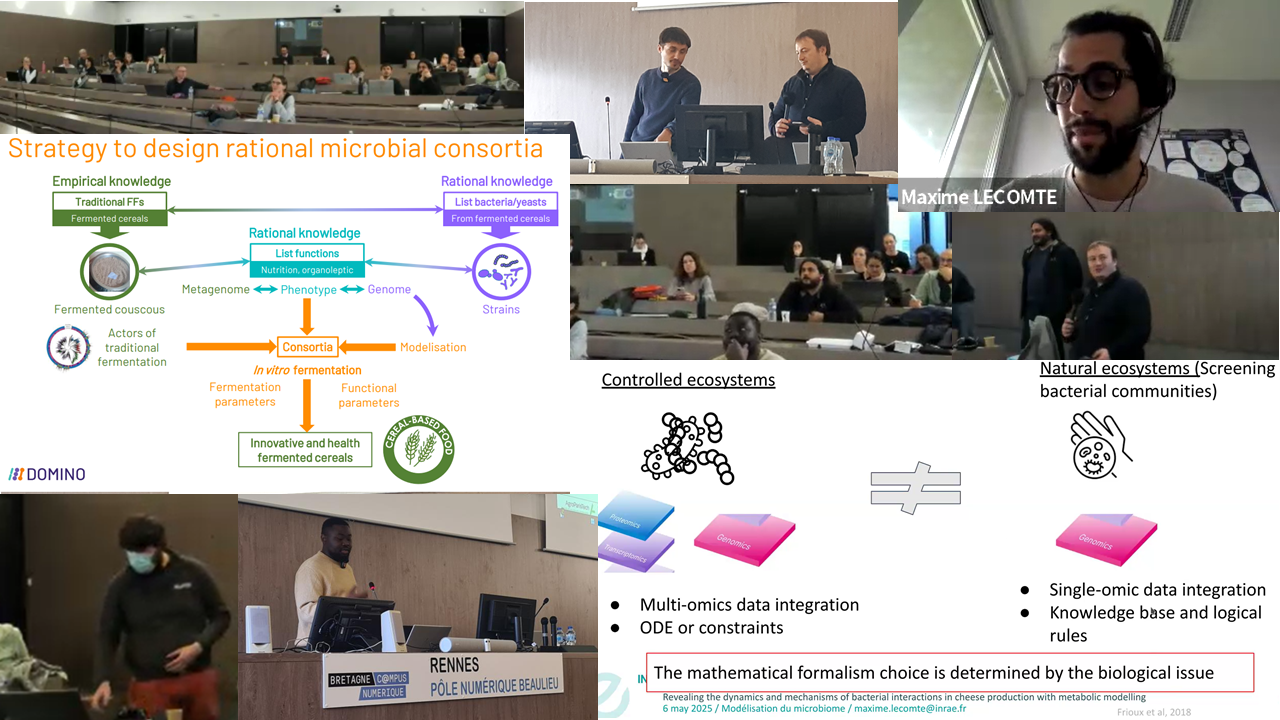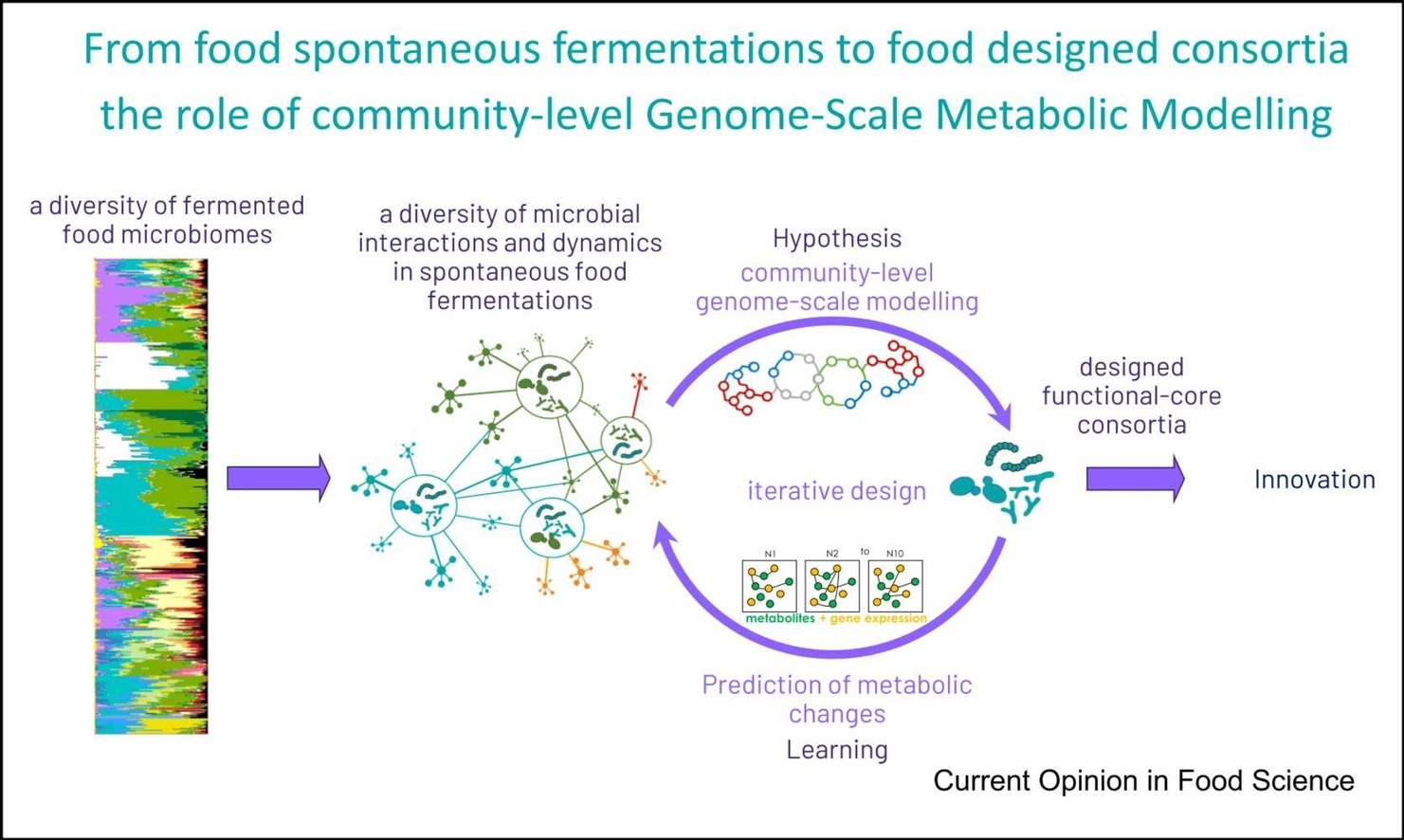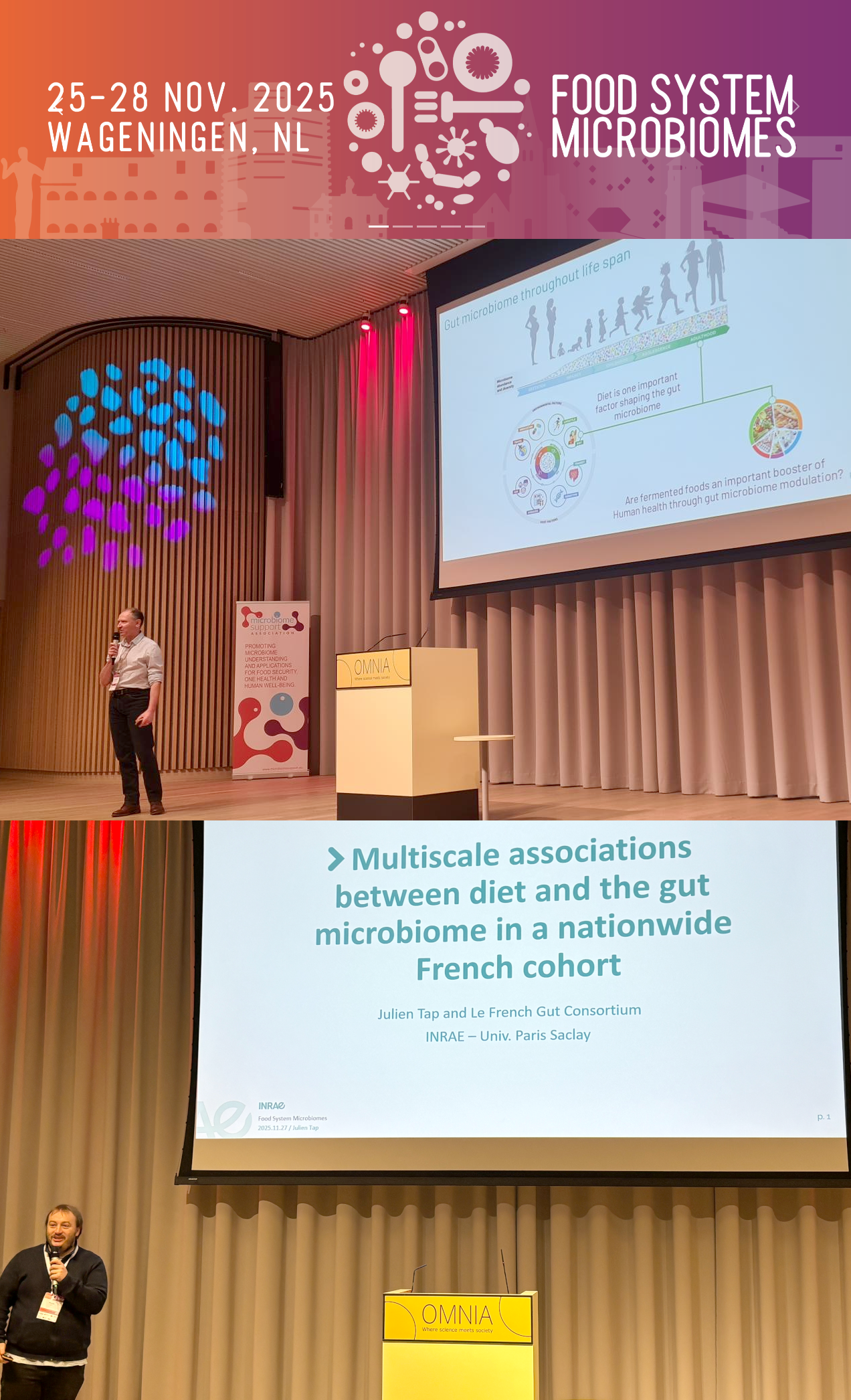Published: May 6, 2025 by FME Lab
The French NEM (Nutrition & Microbial Ecosystems) network hold its annual meeting this last two days (5th – 6th of May) in Rennes. Julien Tap, researcher from the FME lab presented the first results of his Ferment du Future SynthPlex project and how Engineering food microbial consortia can be performed using microfermentors to reveal strain epistasis. With the Support of Holoflux and Digit-Bio INRAE Metaprogram, He also co-organized with Guillaume Gautreau from the MaIAge Unit a specific workshop on modelling of microbial ecosystems.

In this session, Bastien Renard and Ayité Adama-Hondegla, PhD students involved in the #DominoEU project, presented their pioneering work in the design of microbial consortia for plant-based fermented foods using genome-scale modelling. The session resumed with additional strategies and perspectives presented by Maxime Lecomte (INRAE, STLO) and Daniel-Rios Garza (INRAE, Prose). Altogether, they showed that despite the promises that GSM can bring, many challenges remains to be overcome. A very interesting scientific field to follow in the near future.
During NEM days, Microbiome Modelization specific sessions program was:
- Bastien Renard: Design of microbial solutions for healthy and sustainable innovative fermented cereal beverages
- Ayite Adama-Hondegla: Microbial community assembly and metabolic diversity in a legume-based matrix
- Maxime Lecomte: Revealing the dynamics and mechanisms of bacterial interactions in cheese production with metabolic modelling
- Daniel-Rios Garza: Towards the Development of Closed-Loop Microbiome Controllers


